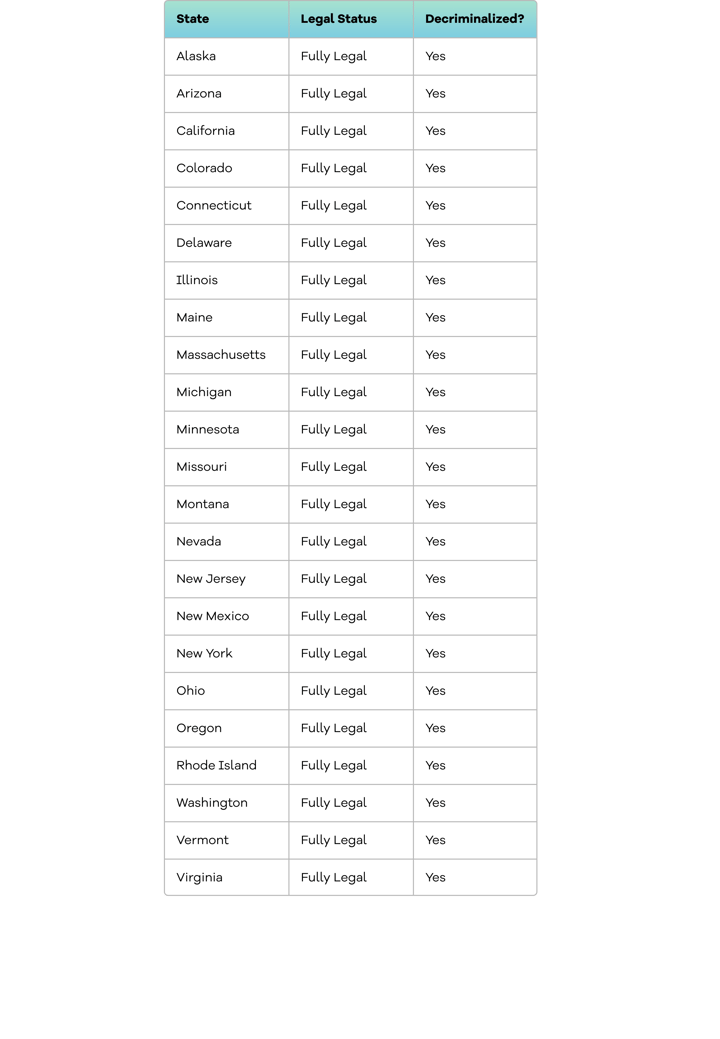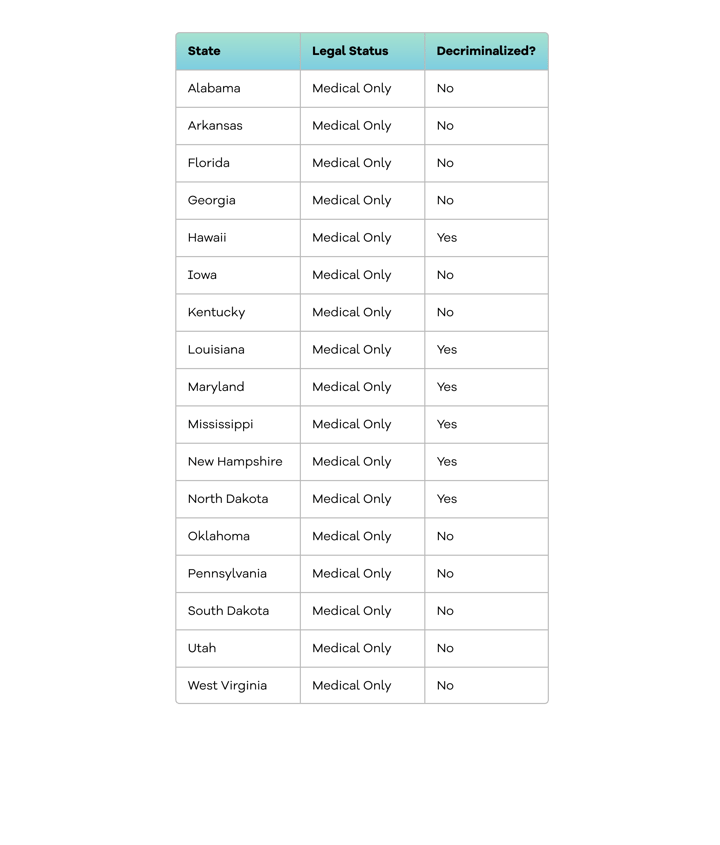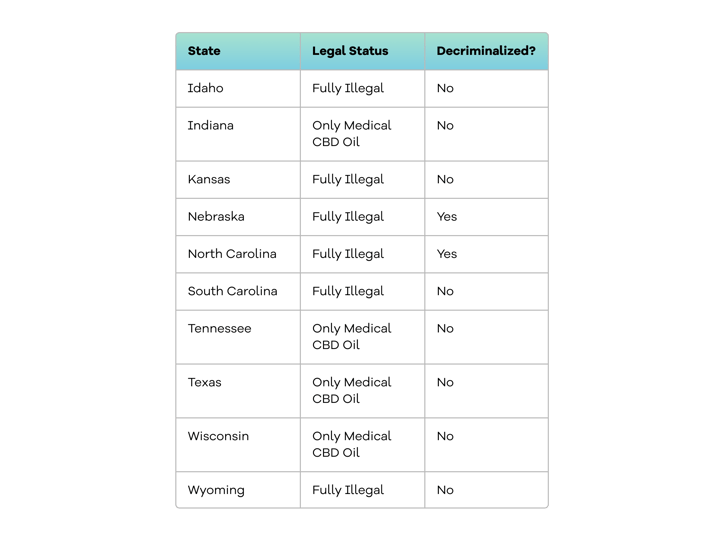Updated November 10th, 2023
Cannabis legalization in the United States is an ever changing topic. With each state having different regulations, it can be difficult to know where your state stands. This article was designed to keep you up to date with all current regulations in the United States. It will be updated frequently to ensure we are giving you the most up to date data. Although some states may have individual laws on CBD oils and low level THC, for the sake of clarity, we will be categorizing into fully legal (meaning rec and medical is legalized), medical only (medical marijuana is currently only legal in some capacity), full illegal meaning neither rec or med is legalized.
Navigating the current state of cannabis legalizations is challenging due to the individual state laws. This can make it extremely difficult to be a cannabis retailer or brand in 2023, especially with so many states on the cusp of legalization this year. On the other hand, it is also an incredibly exciting time to be in the industry with legalization across the United States expanding.
Curious to know where your state stands? Check out the map below:
Made with Visme
States that are completely legalized:

States that are medical only:

States where cannabis is currently illegal or very strict:

What needs to be in place for federal legalization?
There are several things that need to be in place for federal cannabis legalization in the United States:
- Congressional Action: Federal cannabis legalization would require an act of Congress to amend or repeal existing federal laws that prohibit cannabis use and possession.
- Regulatory Framework: The federal government would need to create a regulatory framework for the production, distribution, and sale of cannabis products. This could involve setting up a new regulatory agency or tasking an existing agency, such as the Food and Drug Administration (FDA) or the Alcohol and Tobacco Tax and Trade Bureau (TTB), with overseeing the industry.
- Taxation: Federal legalization would likely involve the implementation of a federal excise tax on cannabis products to generate revenue and offset the cost of regulation and enforcement.
- Banking Access: The federal government would need to address the banking restrictions that currently prevent cannabis businesses from accessing traditional financial services, such as loans and bank accounts.
- Criminal Justice Reform: Federal legalization would need to address the criminal justice implications of cannabis prohibition, including expungement of past convictions and the removal of cannabis from the list of controlled substances.




